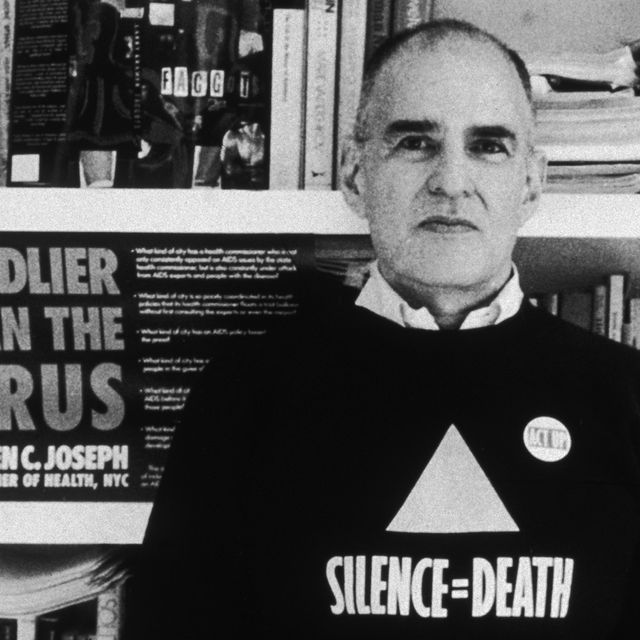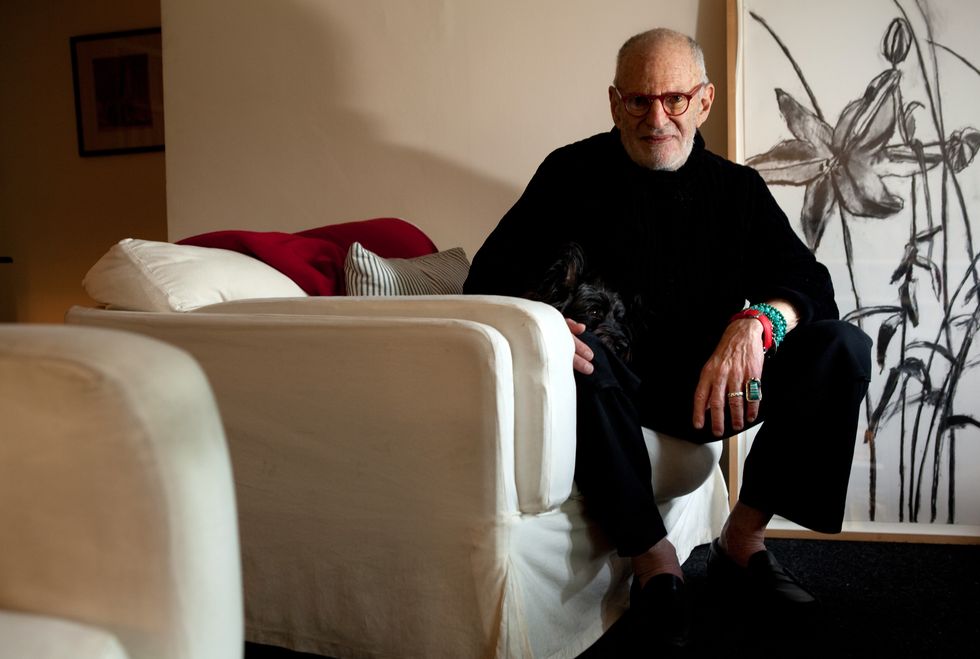As the first sign of the outbreak of the HIV/AIDS crisis in the early 1980s, Larry Kramer started ringing the alarm — loudly and with fury.
But he was often met with inaction, which drove him to get even louder and more furious.
It was that passion — and aggression — with which the playwright reacted to the onset of the AIDS epidemic in New York City that set him on a course in the 1980s and 1990s that would eventually help shift national health policy.
But early on in his fight, in the depths of his frustration with the lack of coverage by the media and lack of action by the government, he documented his own journey in the 1985 play The Normal Heart. While he was fictionalized as the character Ned Weeks, many of the events were autobiographical, as was the heart of the play itself.
“What inspires me is seeing things that are wrong,” he told the New York Times in 2014. “It’s wrong to be treated with such inequality. Considering how many of us there are, how much disposable income we have, how much brainpower we have, we have achieved very little.”
Kramer was a pioneer in bringing awareness to the AIDS crisis
Born June 25, 1935, in Bridgeport, Connecticut, Kramer spent much of his childhood at odds with his father George and brother Arthur. Kramer would come to fictionalize his brother in The Normal Heart as Ben Weeks, who was torn about Kramer being gay. But in real life, Arthur came around and donated $1 million in 2001 to establish the Larry Kramer Initiative for Lesbian and Gay Studies at Yale University, where all three of the Kramer men went to school.
While Kramer started in the film industry in London — where he worked for Columbia Pictures on Dr. Strangelove and Lawrence of Arabia — it was upon his return to the U.S. that he started reading up about a mysterious disease seemingly targeting the gay male community.
That’s when he gathered about 80 people in his New York apartment in 1981 and formed the Gay Men’s Health Crisis, according to the New York Times. That groundbreaking organization was the first for those infected with HIV. And while they all agreed on the mission, not everyone was a fan of Kramer’s brusque approach.
But Kramer was not about to sit down and shut up. After all, he once said, according to the New York Times, “If you write a calm letter and fax it to nobody, it sinks like a brick in the Hudson.” So his approach often seemed more like a brick through a window.
Ironically, he was kicked out of his own organization, with parting words that included calling them “a sad organization of sissies.”
Kramer then founded another group, built on the basis of more extreme action, called Act Up (AIDS Coalition to Unleash Power), which shined the spotlight with demonstrations like laying in the street in front of the New York Stock Exchange to raise the flag on the high cost of the AIDS drug AZT.
His greatest weapon was often himself and his own rhetoric, with notable examples of accusing New York City Mayor Edward I. Koch of “killing Daddy’s friends” (as he put it to his dog) and calling director of the National Institute of Allergy and Infectious Diseases’ Dr. Anthony Fauci “an incompetent idiot.”
'The Normal Heart' brought Kramer's story to the stage and screen
As a storyteller at heart, Kramer wrote what he knew best, turning the events of his real-life activism into the subject of The Normal Heart.
The play debuted off-Broadway in 1985 and ran for a year at The Public Theater — and had productions in London, Sydney and Los Angeles before returning to New York almost two decades later in 2004. At that time, as SARS was spreading, Kramer told Variety in 2003, “It is a plague that never needed to have happened if people had paid as much attention to it in the beginning as they did with SARS.” In 2011 — 26 years after its off-Broadway debut — the production made its Broadway debut, directed by Joel Grey and starring Joe Mantello, Ellen Barkin, Lee Pace and Jim Parsons.
During that time, the film rights had been originally snagged by Barbra Streisand. “The problem with her was she didn’t know what she wanted to do with it,” Kramer told the New York Times. “And she also was really uncomfortable with the subject of gay sex. I really think it’s important that after eons of watching men and women make love in the movies, it’s time to see two men do so.”
While Streisand later reportedly said it was an issue of “taste, not gender,” it wasn’t until 2011 that Ryan Murphy optioned the play and eventually turned it into a 2014 HBO movie with an all-star cast including Matt Bomer, Julia Roberts, Mark Ruffalo, Alfred Molina and Parsons.
Kramer, finally seeing his writing in movie form, called it a “message film,” adding that "if you’re gay, there’s so much death involved — a scary subject.”
Bomer recalled the intense effect reading The Normal Heart had on him when he was just a 14 year old in Texas. “Reading Larry Kramer for the first time, as I’m sure it does with everyone who ever reads him, it just completely changed my worldview,” the actor, who won a Golden Globe for his role, told Indiewire.
Ruffalo, who played the fictionalized version of Kramer, recounted the playwright schooling him when they first met, challenging him to reach deeper. “This movie is less about AIDS than it is about love,” he came to realize, as he told the Seattle Times.
Kramer was satisfied with Ruffalo’s deep study: “We hung out together a lot, and I didn’t ask myself, can he play me. Actors are hired to portray, and good ones like Mark make it their job to go for it all out, which Mark did. He was also extremely passionate about his taking on the part, consumed with it. And this was very touching to me.”
In 2014, the film won the Emmy for outstanding television movie and Kramer himself also received a nomination for writing — finally giving him the attention he fought for so long ago when times were so trying.
And despite his waning health — including being infected with HIV and suffering from liver disease — he was proud to witness his work on screen.
“I came close to dying twice since the beginning of the year — it has been awful,” he told the New York Times in 2014. “I fought to hang on to get to this moment. There were so many times I never thought I would.”
He continued to be an advocate for the gay community right until his death
Kramer then turned his focus on his long-form historical novel, The American People, the first volume published in 2015 and the second in 2020, living to see another pandemic sweep the globe with COVID-19.
The outspoken activist and changemaker died on May 27, 2020, of pneumonia, according to his husband David Webster. And at the time of his death at the age of 82, he was still doing what he did best: sound the alarm on pandemics.
He was working on a play about the gay community having to live through three plagues, including COVID-19, as he told the New York Times in March 2020.
“I love being gay and I love our achievements,” he said in 2014. “I’m so discouraged by what we haven't achieved. We have no power in Washington or anywhere else….we have come far but we haven’t come far.”

